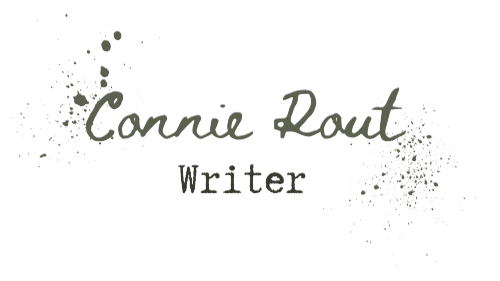Should businesses use AI to write content?
Artificial intelligence. Some people are worried it’ll take over their jobs. Some people think it’ll take over the world. And others are finding new and exciting ways to put it to fantastic use. Is content writing one of them?
The short answer is no – not if you want your written content to do its job properly (although that’s not to say AI can’t be helpful at all for crafting good writing).
Of course, of course, I’m bound to be somewhat biased. As a freelance writer, I’d like businesses to hire me, rather than ChatGPT. But that also means I’ve given it a lot of thought, and you’ll notice I’m not retraining or running off to join the circus, because AI isn’t really threatening my job. Let me explain why instantaneous, top-quality content is indeed too good to be true.
Average doesn’t sell
First off, it’s helpful to understand how AI produces a paragraph of writing. In basic terms, it works a lot like a very advanced predictive text. It’ll tell you what it thinks the next words should be, and it does this by being trained on writing that’s already out there.
So, if you ask ChatGPT to write a website landing page for a garden centre, it’ll choose the ‘correct’ words after scanning content from pre-existing pages (including other garden centre websites).
This is an immediate red flag, because originality is key for businesses.
Why should a potential customer choose you over your competitors if there’s nothing to make you stand out? Good, fresh content captures the reader’s interest and stays with them – so that when they come to make a decision on where to spend their pennies, your business comes to mind.
Sometimes, AI just sounds bad
AI chooses its words based on all the pages of text it’s been trained on across the internet and, as I’m sure you know, there’s a lot of bad writing out there. Or to put it another way, really fantastic writing is rare and special.
There’s not one formula for writing well.
For instance, usually, repeating words isn’t great, but at times it adds impact. Bad grammar is generally frowned upon, but creates personality in other situations. And perfecting tone of voice in writing depends on some pretty abstract things, like rhythm and flow, understanding the cultural associations of words, and even knowing how a phrase will sound in your target audience’s accent. There are so many nuances to writing engaging content, and AI hasn’t mastered them.
What’s more, artificial intelligence struggles to create tailored content. A writer will happily sprinkle in a few regional phrases or tidbits of local knowledge to resonate with your audience. They can also include timely references to current affairs and industry trends to make your content feel cutting-edge. This is particularly difficult for AI to do if it’s been trained on data from a few months, or even years, ago.
All of this matters, because well-written, relevant content is more readable. If it’s more readable it gets read, and if it gets read it gets remembered, shared and talked about – which helps your business attract new clients.
In humans we trust
Much of the content businesses create is designed to highlight their industry expertise. So, you have an immediate problem with using AI to write your blogs, websites and newsletters: people don’t trust it.
In a survey from last year, only 10% of UK respondents said they’d feel comfortable using news written by AI. In 2023, almost half of all British adults surveyed revealed they distrust information from generative AI like ChatGPT.
And there’s good reason. AI text generators have a habit of being ‘confidently wrong’. This means they can present information they’re not actually sure about as if they’re certain it’s correct. One article published this year notes that ChatGPT is inaccurate between 20% and 50% of the time, depending on the model, and that misinformation is even more common when it comes to niche topics.
Worryingly, because AI recycles information without applying critical thinking, studies have shown that the writing it generates can amplify cultural biases around race and gender.
Businesses who want to maintain credibility and authority are best staying clear of content created by artificial intelligence.
An environmental cost
One last thing to mention – but it’s a biggie. Reports are revealing just how much energy and water generative AI uses. Scientists have estimated that training a model like OpenAI’s GPT-3 uses enough electricity to power 120 homes in the US for an entire year.
And it doesn’t stop there. The massive data centres fuelling AI need huge amounts of water to keep them cool, with each 100-word ChatGPT query consuming around 500ml. The Institution of Engineering and Technology has worked out that if everyone in London used AI to write a 100-word email, it would use enough water to fill over seven 25-metre swimming pools.
By comparison, your average freelance writer is alive and kicking anyway, and doesn’t require extra water to create quality content.
If you and your customers are conscious of your business’ environmental impact, it’s worth considering the extra strain AI is currently placing on the natural world before you come to rely on it.
When can AI be helpful for content writing?
AI has arrived and I expect it’s here to stay. It’s exciting and full of potential in so many fields, and it’s impossible to ignore the creative ways it can be used to support content writing.
Currently, it seems like most writers using AI are doing it to generate ideas, and this is something businesses can get on board with too. Perhaps you ask AI to come up with 10 different blog headings. Maybe you want it to describe three imaginary customers, so you can write something with these clients in mind.
For me as a writer, spending time thinking up new ideas is part of the creative process. The very act of brainstorming and planning helps my thoughts take root and I often start scribbling down phrases and sentences that I use later on during my initial mind-mapping. But everyone works differently. Harnessing AI to generate ideas can be a time-efficient option, and even spark a train of thought you might never have considered.
As with anything new and evolving, the best practice is to be open-minded, well-informed and careful to use a good dose of common sense at all turns.
If you’d like to work with a writer who’ll do a genuine human happy dance when you hire her, please get in touch by sending me an email.

